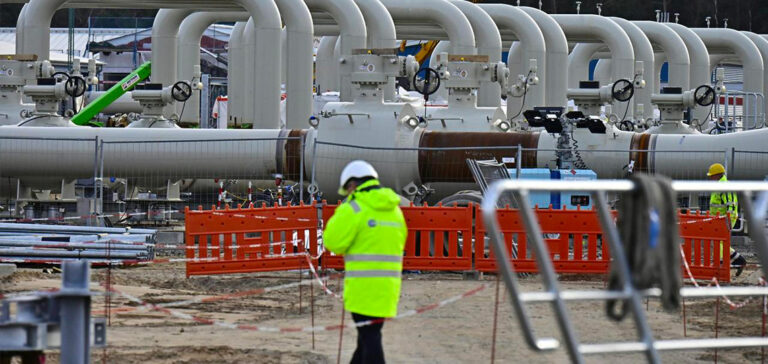The French Energy Regulatory Commission (CRE) announced on Wednesday 04 October that French gas reserves are full in anticipation of the winter, but called for a “massive collective effort to reduce our energy consumption”.
“The storage filling campaign for the winter of 2022/2023 ends with storage filled to more than 99%,” CRE said in a statement, making France the third European country after Belgium and Portugal to fill its natural gas storage capacities to the maximum. With 130 TWh, these reserves, which reached a “level higher than the average of the last years”, represent “approximately 2/3 of the winter consumption of the SME and the private individuals” in France, it details.
The Commission warns against “situations of tension nevertheless possible depending on the conditions of the passage of the winter”. “A massive collective effort to reduce our energy consumption, involving companies, administrations, communities and individuals, is therefore essential,” she says.
A vision shared by the two companies in charge of storage, Storengy, a subsidiary of Engie, and Teréga: “In order to anticipate possible situations of tension in the coming months, a reasoned use of storage facilities as well as an effort of sobriety on gas and electricity consumption appear necessary from now on”, they affirmed in a common press release.
“This storage filling rate confirms the reliability of the French gas system and infrastructure,” praised Teréga CEO Dominique Mockly, whose company stores a quarter of the gas in France, mainly on sites located in the southwest of the country. The remaining three quarters are spread over 14 storage sites scattered throughout the country and operated by Storengy, in natural underground sites such as aquifers.
The government’s objective of filling the country’s natural gas storage capacities by November has therefore been achieved, while Russian gas exports to France have been completely dried up since September 1.
It must present Thursday its “energy sobriety plan”, aiming to mobilize all sectors of economic and social life to reduce by 10% the French consumption of energy in two years and help the country to face a tense winter. Storengy and Teréga insisted on the two scenarios envisaged for this winter. “An average winter with no marked cold spikes shows an overall balanced system,” they write even though there is “little room for maneuver.”
But in the event of a severe or long-lasting cold snap, “the winter deficit can reach 16 TWh, which represents 5% of winter consumption”, warn the two companies. Sobriety measures will then be essential to avoid blackouts and despite this, “all sources will then have to be mobilized” to satisfy consumption. In addition to France, Belgium and Portugal, Poland also has its reserves almost full, with a fill rate of 98.34% according to the Gas Infrastructure Europe database. On average, the European Union countries have filled their storage capacity to 89%, in anticipation of an unprecedented winter without Russian gas. The country with the lowest score is Latvia, with 52.75%.






















